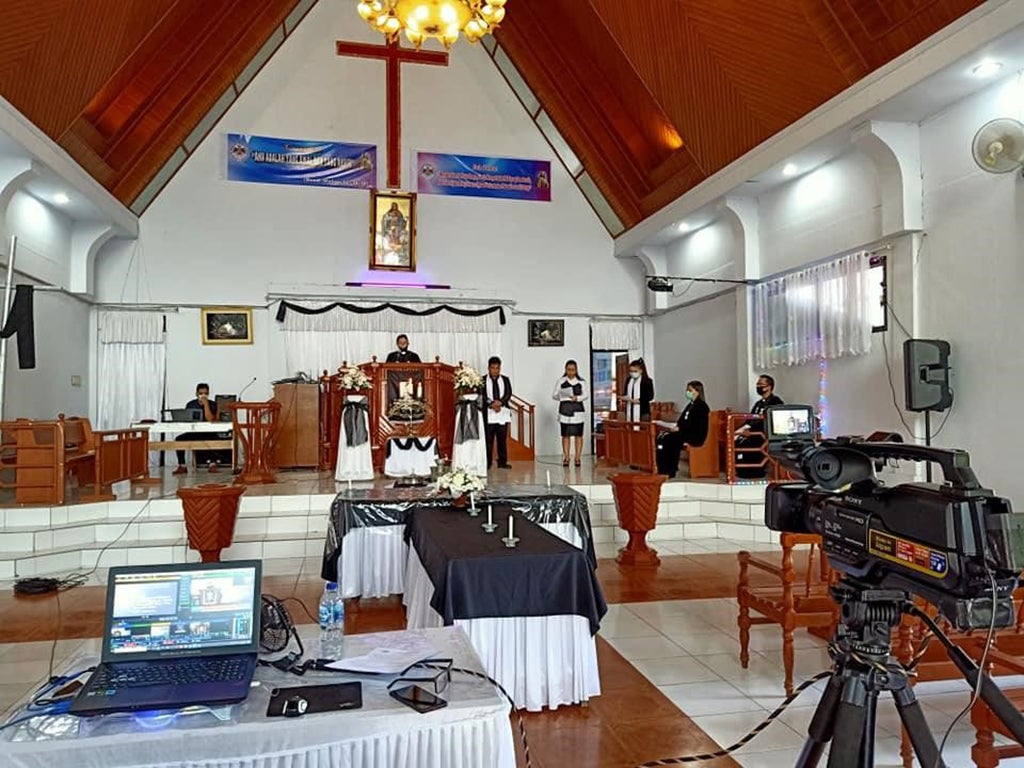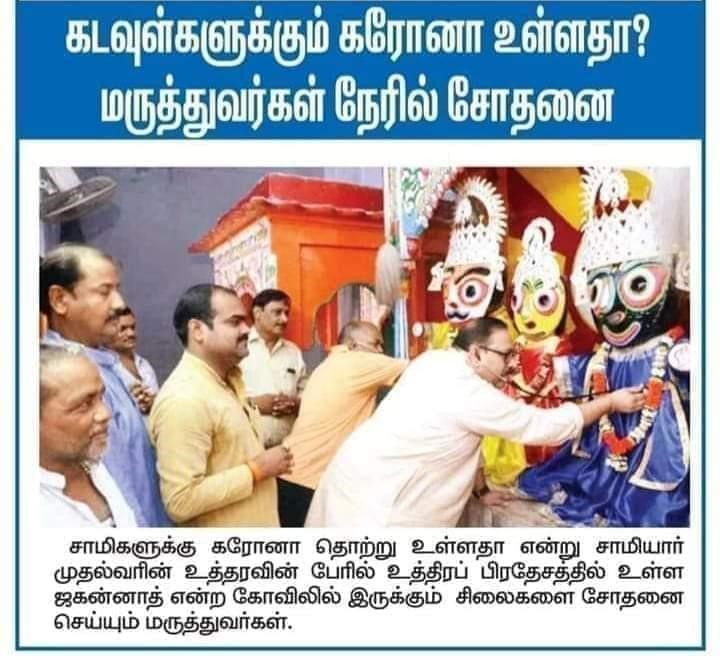Advice from Hell: Underworld Gods on a Live Stream
contributed by Alvin Eng Hui Lim, 25 November 2020
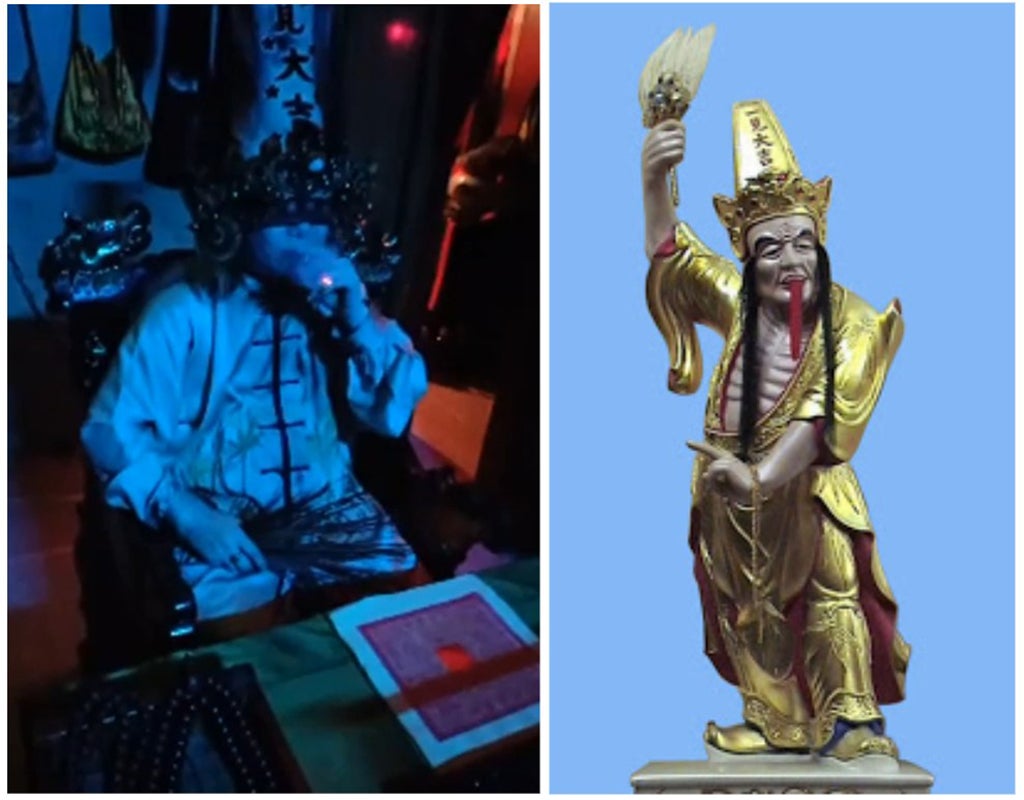
Cover image: Spirit medium possessed by Dua Ya Pek, a screenshot from Facebook video (left), a figurine of Dua Ya Pek, retrieved from blog (right)
On 19 May 2020, I received a notification from Facebook:
“There’s a popular post that you may have missed from 仙坛森府坛大二三爷伯 (Xian Tan Sen Fu Temple [of] Dua Di Ya Sa Pek)”.
Upon opening the link, I realised that one of the temples in Malaysia I have been ‘following’ on Facebook was on a live stream.
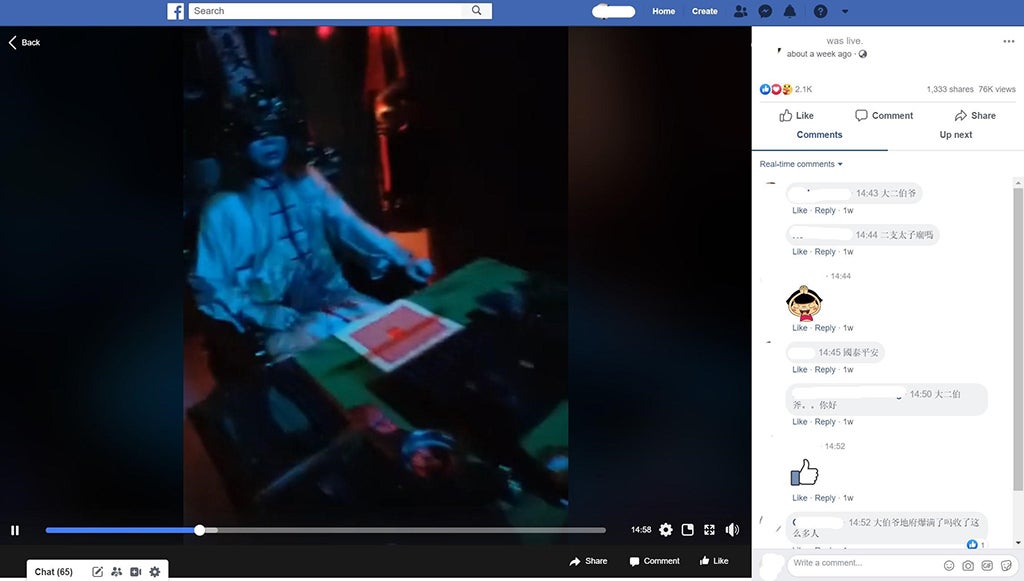
Figure 1. Dua Ya Pek appears to have possessed a spirit medium, captured on a camera phone for an online audience. At the timestamp 0:14:58, Dua Ya Pek gives advice on how to prevent COVID-19 viral infection. Source: Facebook video
Dua Ya Pek, the underworld god, had possessed a spirit medium. One of Dua Ya Pek’s followers used her smartphone to live stream the possession on Facebook, allowing his devotees from a small and private shrine in Selangor to meet with him online. Much of the online session followed a typical format of consultation with the deity in a private temple, but this was done with a twist—a devotee would pose a question on the real-time comments board, an assistant would read it out, and the god chose whether to answer it or not. Midway through the session, Dua Ya Pek revealed a set of four-digit numbers, 1374 - and in the comments section, the host of the livestream can be seen to be encouraging devotees to buy that particular number in their respective lotteries. The next day, the numbers appeared under the category for a special prize in an online lottery draw at Grand Dragon Lottery, as seen in figure 3.
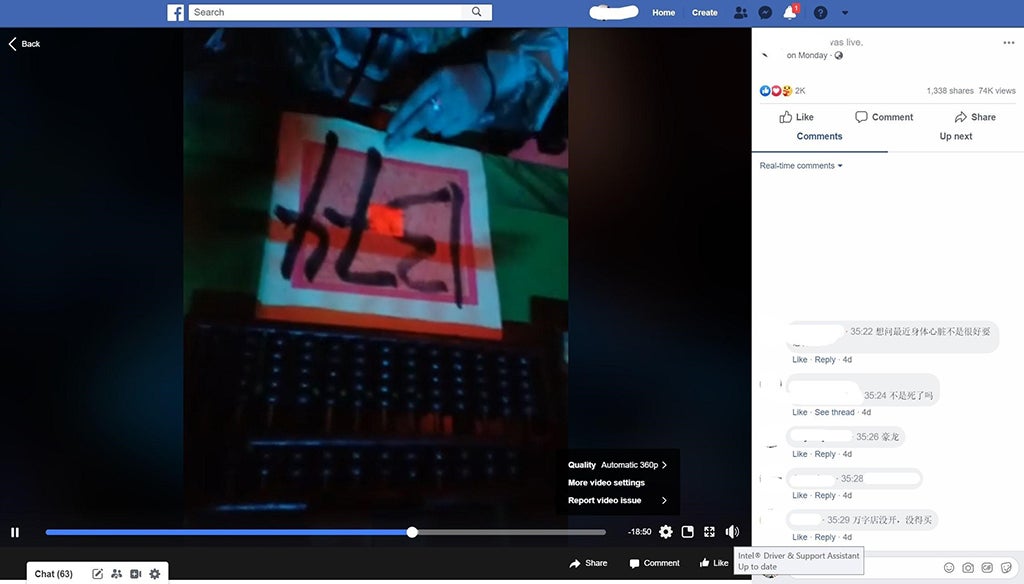
Figure 2. Dua Ya Pek’s winning lottery number. Source: Facebook video

Figure 3. The numbers ‘1374’ under a prized category in an online lottery draw. Screenshot retrieved from the comments section in the above livestream
Over the last four months, I have seen and viewed live-streamed videos of Dua Ya Pek across several shrines, possessing different human vessels each time. These mediums were all physically different, apart from the iconic white robe with the tall headgear that read “一見大吉” (or to have good luck at first sight). Yet, they performed the shared gesture of offering comfort to devotees, giving some measure of predictability to an otherwise unpredictable future. Through fortune telling, divination, and lottery numbers, the gods re-emerge to provide some semblance of normalcy, or rather, a new normal where they too tap into social media to connect with their devotees during times of necessary physical isolation.
Social distancing measures in Singapore and Malaysia persist as the COVID-19 pandemic continues to take its hold across the two neighbouring countries. In Malaysia, places of worship were allowed to reopen in phases and the number of people allowed at temples and churches was gradually increased. Nevertheless, private temples and shrines, particularly in ‘red zones’ that had COVID-19 clusters, were prohibited from holding gatherings.
In the video of Dua Ya Pek in Selangor (see Figure 1), the underworld god, after several real-time ‘comments’ from his online audience, addressed the health crisis and recommended either hanging a stalk of lemongrass at the entrance of the house or keeping one in the pocket to ‘ward’ off the virus. One might also soak the lemongrass in water and use it for washing hands. The use of lemongrass is of course not a proven preventive measure, but I am highlighting this to show how this spirit-medium practice has had to improvise in the face of the pandemic. As mentioned, this follows the convention of meeting devotees in a shrine where the deity, while possessed, offers advice and remedies to personal ailments and financial problems. Now, extended and projected on the Facebook platform, the consultation has a specific remedy for COVID-19.

Figure 4. Dua Ya Pek appears on 28 May 2020 at another temple in Johor. Source: Facebook video
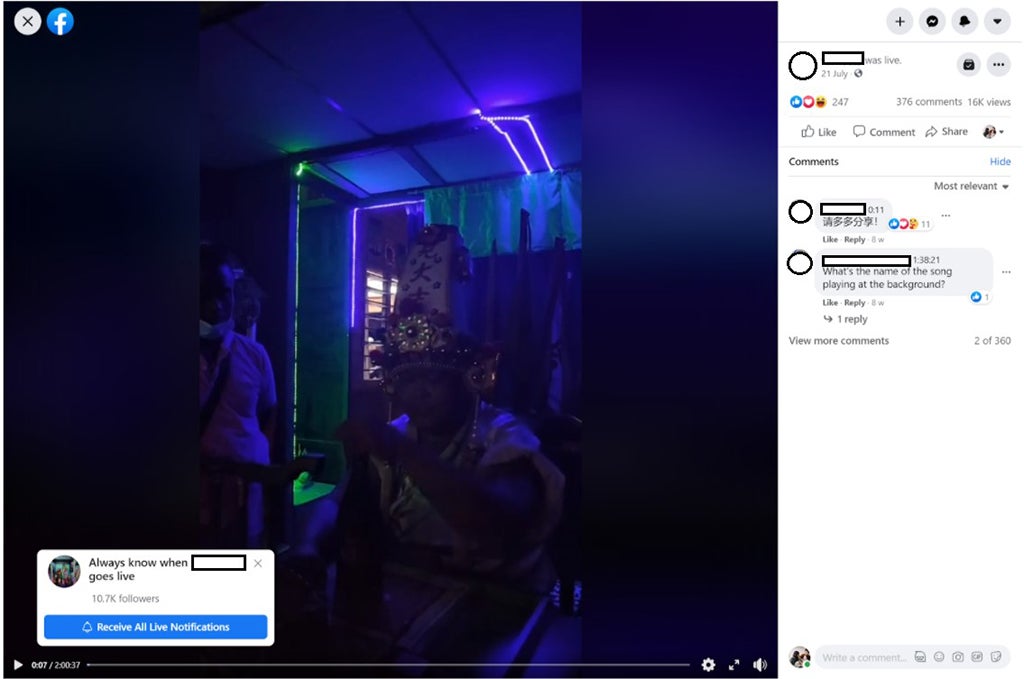
Figure 5. Dua Ya Pek appears on 21 July 2020 at another temple in Selangor. Source: Facebook video
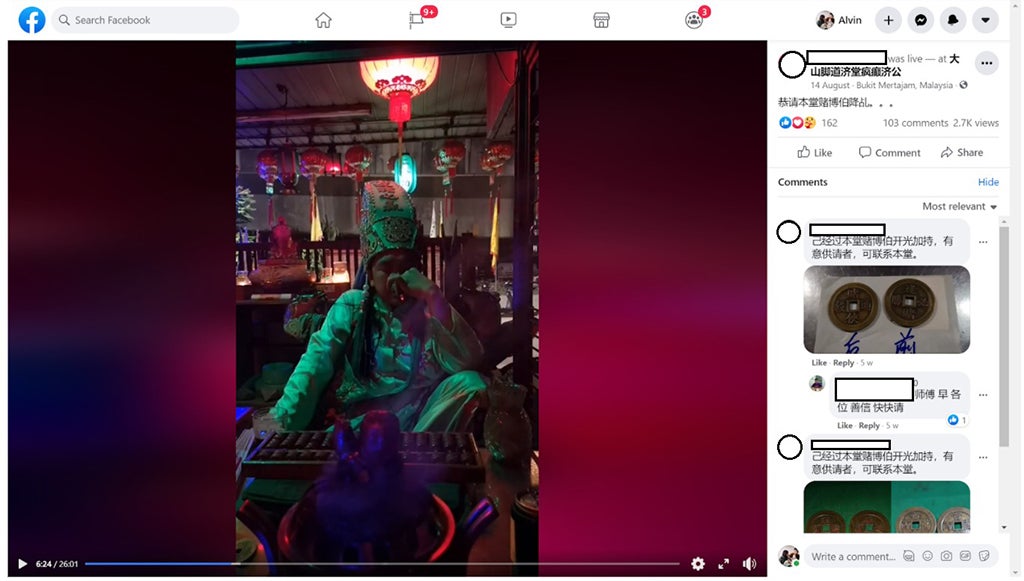
Figure 6. Dua Ya Pek appears on 14 August 2020 at a temple in Pulau Pinang (Penang). Source: Facebook video
Consultations with underworld deities are often private, as questions from the devotees could be related to their personal life, including health ailments and relationship problems that need divine intervention. The shift to social media subverts this prior understanding, making the possession public. This is perhaps not at all surprising given the urgency and magnitude of the health crisis that affects all aspects of one’s life and livelihood - including loss of income and the looming fear of catching the virus.
Yet, life must go on. It is comforting that one of the guardians of hell would permit being broadcast on the internet. After all, Dua Ya Pek is typically seen with a tablet that reads “大笑” (to laugh heartily or to laugh out loud), and his appearance, multiplied across these shrines, would offer some relief and bring smiles to his devotees and online audience. While Dua Ya Pek has yet to have a Facebook or an Instagram account, this is as close as it gets for them to experience the digital world of TikTok, Instastories and the increasingly popular live streaming of auction hosts - internet personalities who market various products via online platforms to their audiences.
Previously, I had considered how still cameras, screens, headsets and speakers, and Whatsapp messages contributed to a virtual place-making, reminding devotees and followers of a life of worship and devotion that must continue. Here, the spirit possession adds another layer of immediacy, despite being mediated through the live streaming technology. When the gods are still able to predict the winning lottery numbers, drink and smoke in front of their followers, and use the Internet, the disembodied bodies of spirit mediums now could, as if as one yet multiplied, perform the underworld gods’ collective stance that they are available and active in a time of crisis.
Disclaimer: The views and opinions expressed in this article are those of the authors and do not necessarily reflect the position of the blog editorial team or the Asia Research Institute.
South Asia | Southeast Asia | East Asia | Other Places | Hinduism | Buddhism | Islam | Christianity | Other Religions
Alvin Eng Hui Lim is a performance, religion and theatre researcher. He is Assistant Professor in the Department of English Language and Literature at the National University of Singapore. His first monograph, titled Digital Spirits in Religion and Media: Possession and Performance (2018) studies how lived religious practices in contemporary Singapore perform in combination with digital technology. You can contact him at his email address: alim@nus.edu.sg, or find him on twitter @dasparadies.
Other Interesting Topics
Minahasan Church’s Response to COVID-19 in North Sulawesi, Indonesia
The first case of COVID-19 in Indonesia was announced by President Joko Widodo on March 2, 2020. Soon after, the government implemented a health protocol to prevent the spread of the coronavirus, initially called “social distancing,” but later replaced by the term “physical distancing.” Starting in Jakarta, the coronavirus then spread outward to other regions...
Do the Gods Have COVID-19 Too?: Protecting Idols, Cherishing Deities
Do the gods also have the Coronavirus? Doctors diagnose in person”, reads the headline of a Tamil newspaper article about the Jagannath temple in Uttar Pradesh (UP), India. Under the orders of the monk-cum-chief-minister of the state, doctors are seen holding a stethoscope to listen to the internal sounds of...


